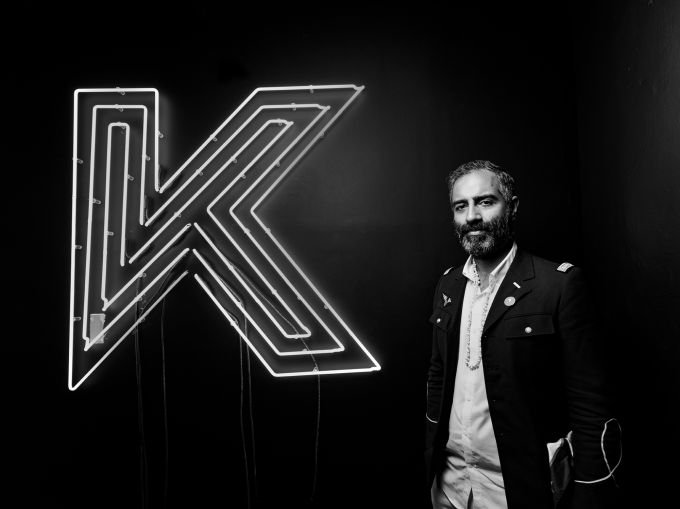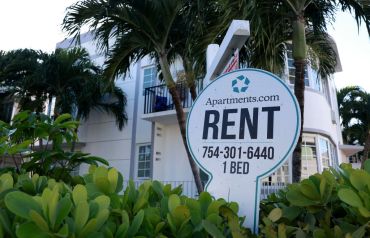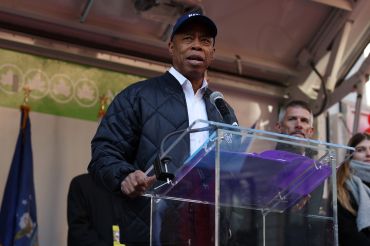Knotel Has ‘Profitability Very Much in Sight,’ CEO Says
Amid reports of vacant space, layoffs and concern over competitor WeWork’s money-burning model, Knotel CEO Amol Sarva said the company expects to be cash flow positive this year.
By Nicholas Rizzi January 27, 2020 4:31 pm
reprints
Knotel’s CEO and co-founder Amol Sarva is ready for a heart to heart.
In a conference call with reporters on Monday afternoon, Sarva said the four-year-old startup has “profitability very much in sight” and released some financial figures, providing a rare look at the firm’s inner workings. This marks the first time that Knotel — which was crowned a unicorn last year after it closed on a $400 million funding round — has invited outsiders to look at financial details about its company.
The move comes as the flexible office space provider has faced negative headlines, including reports in November 2019 that nearly one-third of Knotel’s New York City portfolio is sitting vacant, that its leasing activity dropping by nearly 80 percent in the second-half of last year and the news earlier this month that it laid off 24 Manhattan staffers.
In the call earlier today, Sarva disclosed that the firm began the year with $350 million of contracted annual revenue, up from $100 million at the start of 2019. He expects the company to be cash flow break-even by the end of 2020.
“We are just ticking through the months and quarters to reach, what I think, is a very important milestone for any business,” Sarva said. “I feel that we’re in a very strong position to get there.”
(Disclosure: Observer Capital, led by Observer Media Chairman and Publisher Joseph Meyer, is a Knotel investor.)
Sarva said that he expects the firm to reach that goal aided by its leases in markets like San Francisco, Paris, London and New York.
While New York still remains the startup’s largest market (Knotel pulls in $10 million a month of new business from New York, he said), the firm is diversifying outside the Big Apple. The company now generates about 50 percent of its revenue from newer markets, such as Boston, Washington, D.C. and Amsterdam, he said. Previously New York, where Knotel was founded, accounted for the majority of its revenue.
The only previous glimpse into Knotel’s financial workings came in 2018 when The Real Deal obtained internal numbers that showed Knotel had a earnings before interest, tax, depreciation and amortization loss of $24.1 million on $17.6 million in revenues for the first half of that year.
Earlier this month, a CBRE (CBRE) report found that Knotel signed 80 percent less leases in the fourth quarter of 2019 compared to the third quarter, while the overall flexible office leasing market dropped 75 percent during that time.
Sarva said that Knotel added 1.1 million square feet to its portfolio in the second half of 2019, which is close to its total space leased in 2018. It’s taking about three to four months to get deals done with landlords, he noted.
He added that more than 500,000 square feet of its 5-million-square-foot portfolio is management agreements with landlords.
The company faced scrutiny in November 2019 after Crain’s New York Business reported that Knotel had 260,000 square feet of vacant space in its portfolio, with the number expected to climb to 800,000 square feet in 2020. While Sarva did not confirm the numbers, he contended that a certain level of vacancies were par for the course for flex office space companies.
“We operate a flexible office platform, by definition we run spaces that will be available for us to sell every year,” he said. “The point of the business is not to lock up our portfolio in very long leases.”
“Our customers don’t want to move, but they want to know they can make changes and that absolutely requires us to keep our portfolio liquid,” he added.
On the staffing front, it was reported on Jan. 17 that Knotel laid off 24 employees that focused on the New York City market, about one-third of the staffers at its 22 West 38th Street office. Knotel also lost its head of corporate finance, Jenny Buchholz, earlier this month when she joined elevator display provider Captivate.
Sarva said that the company is still focused on New York and that it’s brought in 10 “relatively senior” staff to the team that faced layoffs. The payroll for that division will be the same in February as it was in December 2019, he added.
“We’re really focused on winning in New York,” he said.
The conference call comes after a series of blows to Knotel and the flex office industry that started after WeWork (WE)’s disastrous initial public offering attempt last summer. WeWork’s IPO filing showed that while it has $1.82 billion in revenue in 2018, it had net losses of $1.6 billion during that same time. Since then, WeWork lost its CEO Adam Neumann, pulled out of the IPO and laid off 2,400 workers.
While Sarva said WeWork’s troubles have made Knotel change its tactics going into 2020, he expects that coworking and flexible office will survive.
“We feel good about the category this year,” he said. “There has been a lot of discussion as we figure out what happened last year. But, these numbers don’t lie.”


